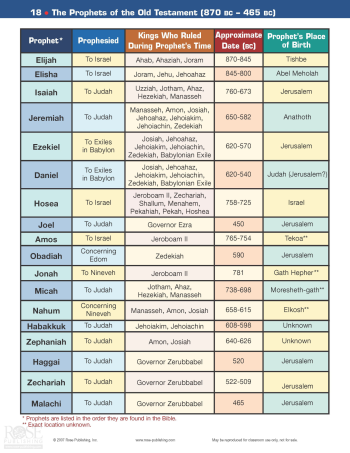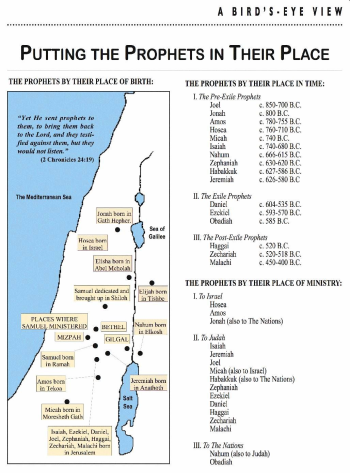It's good to have this information at our fingertips and at our disposal.
Quote regarding the Pre-exilic Prophets and their ministry.
Let’s explore the pre-exilic prophets and their order of ministry. These prophets played a crucial role in Israel and Judah’s history, foretelling events that would significantly impact their people.
Quote regarding the Pre-exilic Prophets and their ministry.
Let’s explore the pre-exilic prophets and their order of ministry. These prophets played a crucial role in Israel and Judah’s history, foretelling events that would significantly impact their people.
- Jonah: Jonah’s ministry occurred during the pre-Assyrian period, around 734 to 722 BC. He warned of the Assyrian empire’s impending conquest, which eventually led to the exile of the northern tribes of Israel in 722 BC1.
- Amos: Amos also ministered during the pre-Assyrian era, alongside Jonah. His prophecies emphasized social justice and God’s judgment against Israel’s injustices. His ministry spanned from around 760 to 750 BC1.
- Hosea: Hosea’s prophetic work overlapped with Amos. He focused on Israel’s unfaithfulness and used his own troubled marriage as a symbol of God’s relationship with His people. Hosea’s ministry took place around 750 to 725 BC1.
- Micah: Micah’s prophecies occurred during the pre-Assyrian period, aligning with the ministries of Jonah, Amos, and Hosea. He emphasized justice, humility, and the coming judgment. Micah ministered from around 735 to 700 BC1.
- Isaiah: Isaiah’s extensive ministry spanned several decades, covering both the pre-Assyrian and pre-Babylonian periods. His prophecies warned of Assyria’s invasion and later Babylon’s conquest. Isaiah ministered from around 740 to 686 BC1.
- Nahum: Nahum prophesied during the pre-Babylonian era, specifically addressing the fall of Nineveh (the capital of Assyria). His ministry occurred around 663 to 612 BC1.
- Zephaniah: Zephaniah ministered during the pre-Babylonian period, emphasizing repentance and God’s judgment. His prophecies date back to around 640 to 609 BC1.
- Habakkuk: Habakkuk’s ministry also took place before the Babylonian exile. He questioned God’s justice and received answers regarding the impending Babylonian invasion. Habakkuk ministered around 605 to 597 BC1.
- Jeremiah: Jeremiah’s prophetic career spanned both the pre-Babylonian and exilic periods. He warned of Babylon’s invasion, witnessed the fall of Jerusalem, and continued to minister during the exile. Jeremiah’s ministry extended from around 627 to 586 BC1.
- Ezekiel: Ezekiel prophesied during the pre-Babylonian and exilic times. His visions and symbolic actions conveyed messages of hope, restoration, and judgment. Ezekiel ministered from around 593 to 571 BC1.



